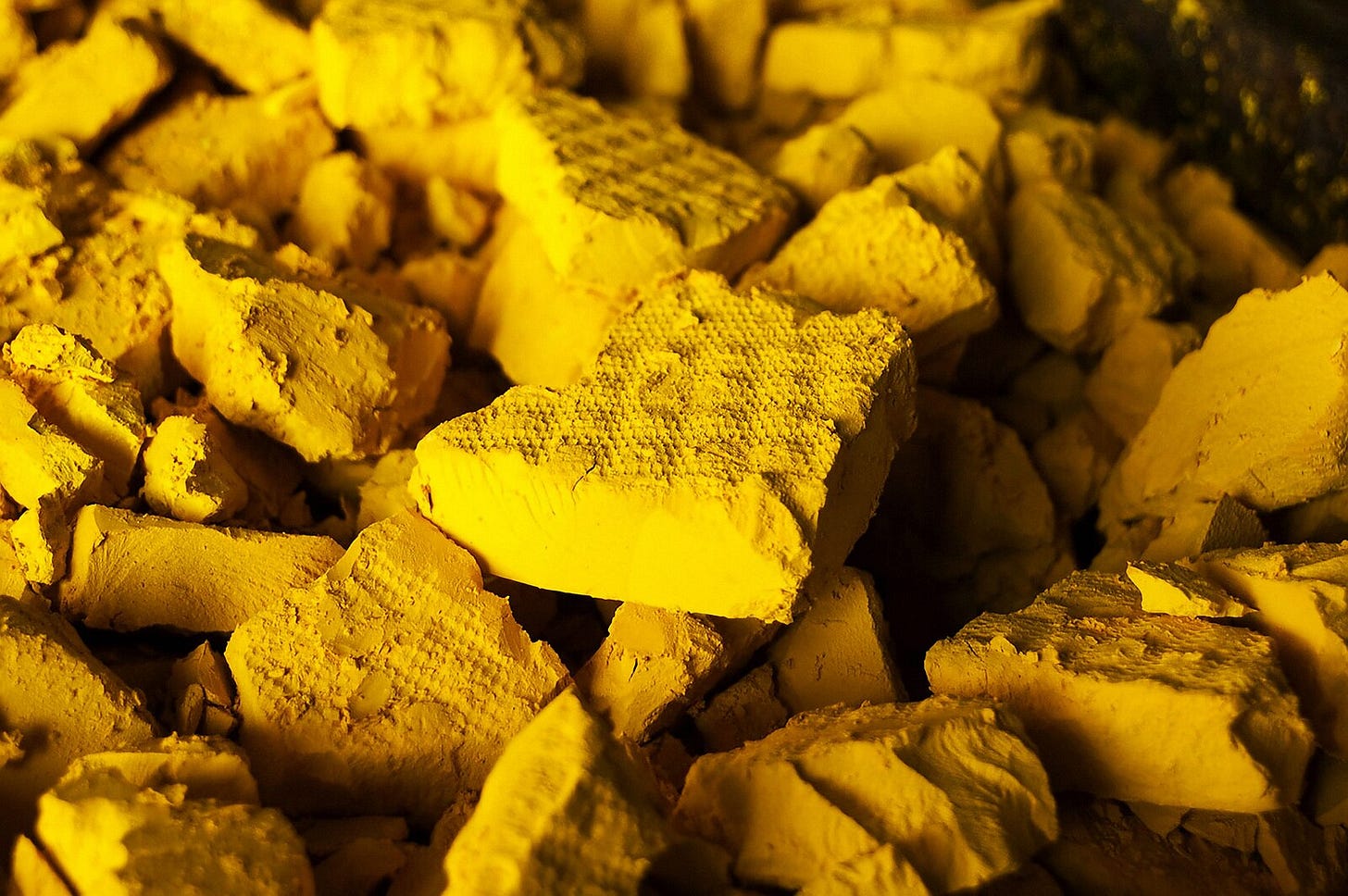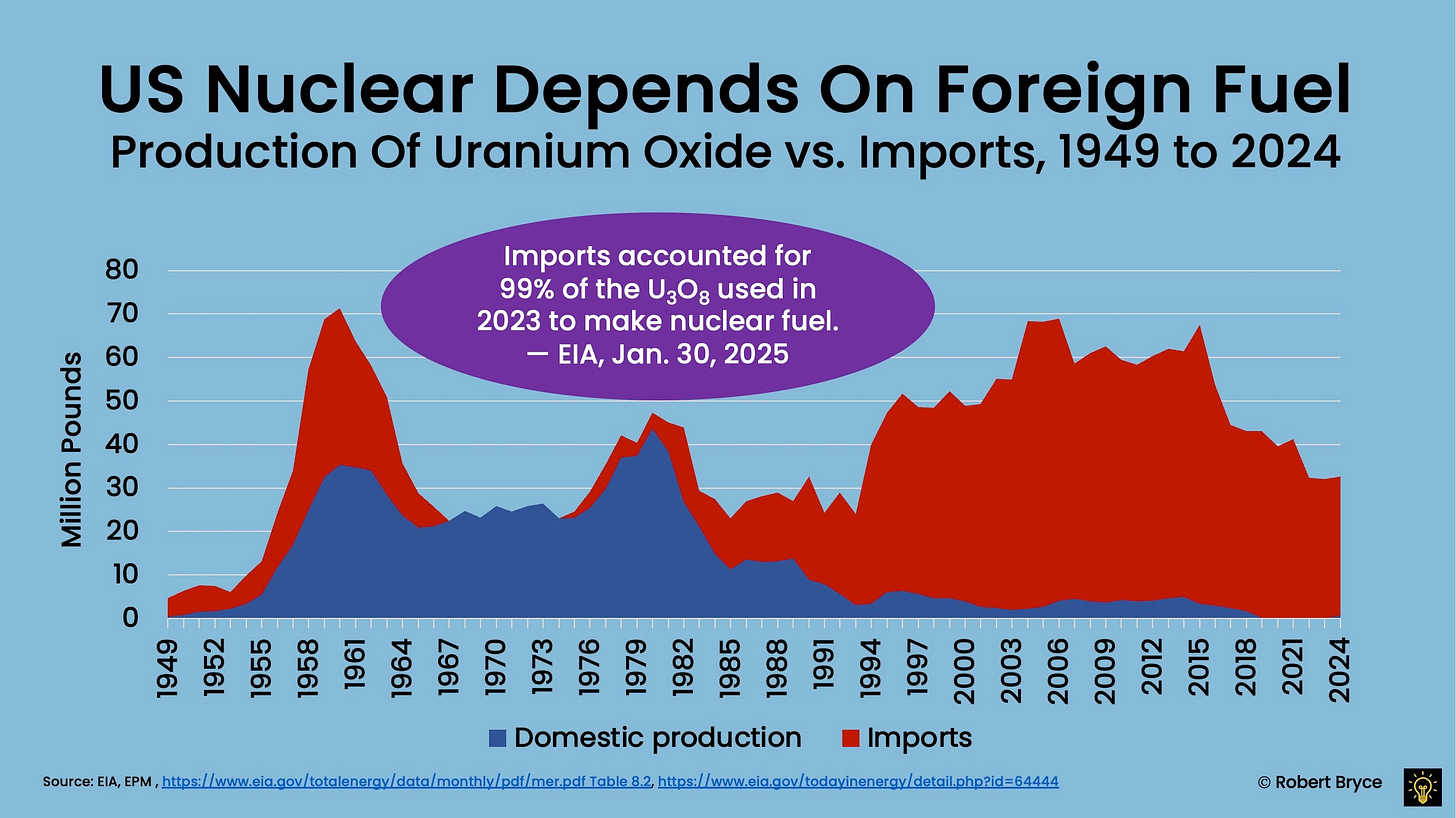Uranium Unchained
SMR Intelligence Update #2: A primer on nuclear fuels, from LEU to TRISO; Plus another IPO in the works & the SMR company count keeps climbing.

More than three dozen US companies are now hoping to commercialize small modular reactors. And all of those companies are facing the same issues: regulations, capital, and fuel. Of the three, the fuel part of the equation may be the most complex and most challenging.
The US nuclear energy sector depends entirely on imported uranium and nuclear fuel, which primarily comes from suppliers in Russia, Canada, Australia, Kazakhstan, and Uzbekistan. And under a law passed by Congress and signed into law by President Biden last year, the US nuclear sector must quit buying nuclear fuel from Russia by January 1, 2028.
That ban looms larger with every passing month. Why? Russia now supplies about 20% of the enriched uranium used in US commercial reactors. Thus, the US nuclear sector must begin ramping up production of nuclear fuel for the new wave of reactors that will be built over the next decade. It must also build up the domestic and international supply chains needed to replace the fuel it has been buying from Russia. In all, global production of uranium ore and enriched nuclear fuel production will likely have to double — or more — between now and 2050.
And while we are now tracking dozens of companies in SMR Intelligence US and SMR Intelligence Global, only five companies are producing significant quantities of fuel for use in commercial nuclear reactors. That list includes: Centrus, Orano, Urenco, Rosatom, and China National Nuclear Corporation.
Given the complexity of the market and the fact that different reactor designs require different fuels, Jacob and I have created a primer on the fuel types most commonly used in the SMRs being developed by US companies. In addition to the primer, this SMR Intelligence Update provides details on another SMR company planning to go public, as well as information on a new SMR startup that is developing a reactor that may utilize a lead-bismuth coolant.
Let’s take a look.




